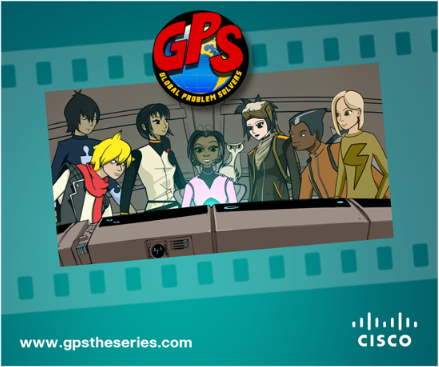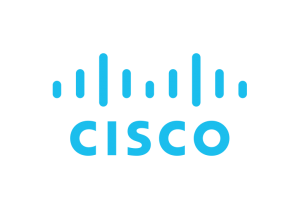- Subscribe:
- Apple Podcast
- Google Play
- Acast
- Overcast
- Stitcher
- Spotify
” The youth will be the future leaders of countries, captains of industries, the innovators to solve some of the world’s toughest challenges.” Tae Yoo, SVP of Corporate Affairs, Cisco
Achieving the Sustainable Development Goals will make the world a better place for all, but the world cannot reach these goals without the active energy and new thinking of young people. Edie Lush and Claudia Romo Edelman explore that idea in this episode about youth and political activism. Speaking to young people on every continent, they find a strong desire to team up with friends to solve social problems, though, they also hear concerns about “clicktivism,” a tendency to confuse expressing a desire for action on social media with real action. This episode touches on the increasing role of young women as leaders and the shapers of agendas, including more attention to issues of concern to women, such as menstrual health, as well as efforts to bring more women into politics and governing. Also, hear how our sponsor, Cisco, introduces you to a valuable resource for youth, Global Problem Solvers: The Series.
Featured guests

@aditiraisharma Aditi is currently a Doctor of Public Health (DrPH) student at the Penn State College of Medicine in Hershey, Pennsylvania. She is a fierce advocate for women’s health, specifically menstrual health and hygiene. Most recently, she was the Health Focal Point for the Emergency Medical Response Team at the International Organization for Migration (IOM) in Chautara, Sindhupalchok, the epicenter of the 2015 Nepal earthquake. As the sole health program officer for the IOM in the region which suffered the highest casualty, she covered a wide range of responsibilities. In 2014, Aditi founded Kalyani with peers who are also dedicated to improving the lives of women in Nepal. This NGO works to empower women through promoting sustainable livelihoods.

@kennyimafidon Kenny is the co-founder & Managing Director of ClearView Research Ltd, a leading-edge research company, who specialize in research focussing on young people and social impact evaluation. Described by Huffington Post UK as a “young rising star making waves in UK politics,” Kenny has written influential & award-winning publications and has led on innovative partnerships with global brands such as Uber, Tinder and Deliveroo, on campaigns to get young people registered to vote and turnout in UK elections and the EU referendum. His work in both the worlds of research and politics has taken him around the world to countries such as, the United States, Brazil, Austria, Tunisia, Israel, and Hong Kong.

@tabataamaralsp Tabata Amaral, 24-years old, is an education activist. She graduated magna cum laude with highest honors in Government and Astrophysics from Harvard College. Coming from the outskirts of São Paulo, Tabata is the co-founder of Movimento Acredito, a political renovation movement, and Movimento Mapa Educação, a movement that strives for a quality education for all Brazilians, accompanying educational policies and holding debates to make education, in fact, a priority in the national agenda. She received the “Makes Difference” Prize of O Globo (Society/ Education Category) in 2016, McKinsey’s Next Generation Women Leader Award in 2017 and Glamour’s Women of the Year in 2018.

Tae leads Cisco’s social investments and stewards CSR and sustainability across the business. She directs Cisco’s business, technical, and financial assets to accelerate global problem solving to positively impact people, society, and the planet. Under Tae’s leadership, Corporate Affairs strives to inspire, connect, and invest in global problem solvers to nurture innovative solutions and catalyze an entrepreneurial ecosystem that supports progress and inclusive growth. Corporate Affairs also invests in developing digital skills so everyone can participate in the digital economy and become a global problem solver. Corporate Affairs has committed to positively impact 1 billon people by 2025. A founding Cisco employee, Tae pioneered Cisco’s Business Development – establishing new markets through partnerships for joint product and market development. She is a Trustee of the Cisco Foundation, a member of the Service Year Alliance Board and of the World Economic Forum Global Future Council on Education, Gender and Work.

Katherine Clemens is a manager for K-12 initiatives that help strengthen the pipeline for entrepreneurship and innovation. She is responsible for designing and implementing programs related to learning through design thinking and hands-on applied projects, including teacher training and high school after-school clubs and programs. Prior to joining ASU, Katherine served as an English teacher at Maryvale High School, where she designed and implemented an innovative, rigorous curriculum that resulted in unprecedented student growth and achievement. Katherine entered the teaching profession in 2010 through Teach For America, an organization that seeks to raise student achievement in high-need schools. She continues to serve as a content leader for Teach For America, facilitating professional development sessions for corps members and supporting teachers in planning and implementing strong curriculums. Katherine received her B.A. in political science from Purdue University and her M.Ed. in secondary education from ASU’s Mary Lou Fulton Teachers College.

@LalehKhalili Laleh Khalili is a professor of Middle East Politics at SOAS University of London and author of Heroes and Martyrs of Palestine: Politics of National Commemoration and Time in the Shadows: Confinement in Counterinsurgencies.

@ladeebittaye Isatou Bittaye is a human rights advocate and feminist with almost a decade of experience working in women’s and girls’ rights and young people’s empowerment. She serves as the Communications Manager of The Girls’ Agenda, a youth led organization working for the empowerment of young women and girls and advocating to end FGM, child marriage, promoting sexual and reproductive health rights, life skills and leadership, and girl’s access to education. Previously, she served as the Senior Program Officer at the National Council for civic Education where she led the programs team and educated Gambian citizens on their constitutional rights and civic duties and responsibility to hold the government accountable. She holds a BSc. in Political Science from the University of The Gambia and Master’s in International Studies from National Chengchi University in Taiwan.

Celina de Sola is Co-Founder and Vice President of Programs at Glasswing. She aims to design and implement innovative, community-based initiatives that bring institutions and people together through joint action. After almost a decade leading humanitarian responses and developing public health programs in over 20 countries around the world, Celina decided to return to her home country of El Salvador. Celina is an alumnus of the University of Pennsylvania (BA) and its Graduate School of Social Policy and Practice (MSW), as well as Harvard University’s School of Public Health (MPH). Celina is a Fellow of Ashoka, LEGO Foundation Re-Imagine Learning, Penn Social Impact House, and is a Tällberg Foundation Global Leader.

Lori Adelman is the Director of Youth of Women DeliverEngagement. An advocate and mediamaker focusing on race, gender, and sexual and reproductive rights, Lori has a decade of experience promoting the health and rights of women and girls in the U.S. and globally. Lori was formerly the Director of Global Communications at Planned Parenthood Federation of America and Executive Director at Feministing.com, a popular and award-winning online community run by and for young feminists. Lori has also worked at the United Nations Foundation on the Secretary-General’s flagship Every Woman Every Child initiative, and at the International Women’s Health Coalition and Human Rights Watch. As a leading voice on feminist and women’s rights issues, Lori frequently consults, speaks and publishes on feminism, activism and movement-building. She has appeared on outlets such as MSNBC and WNYC, and in publications like Elle, The Grio, Rookie Magazine and The New York Times. She has contributed to several books such as “The Feminist Utopia Project” and “My Freshman Year of Life”.
Additional Resources

Global Problem Solvers: The Series (by CISCO)
Preparing for the Future As technology continues to shape our world, it is becoming increasingly important to prepare future business leaders and workers with the right digital skills. That’s why Global Problem Solvers: The Series has been designed for students during a critical development period and inflection point in STEM adoption. Through this program, we aim to demystify technology and explore the potential of the Internet of Things (IoT) for social good. By leveraging an engaging combination of animated stories and activities, the program helps educators introduce students to important skills like complex problem solving, critical thinking, creativity, people management, and coordinating with others. It also emphasizes social consciousness, entrepreneurship, and the potential of technology to accelerate bringing positive change to the world. More Than Just Ideas Students focus on real-world social, economic, and environmental problems around the world. Through the program, they learn that coming up with ideas is just the first step in problem solving. While interacting with each other, they discover the stages of making ideas real – design, manufacturing, deployment, maintenance, and funding. By approaching social change as an entrepreneur and applying technology to accelerate the difference they can make, students are challenged to find solutions that are scalable and sustainable. In doing so, they also learn the skills they will need to thrive in an increasingly digital world. Cisco Corporate Social Responsibility believes that our future will be defined by global problem solvers – global citizens ready to thrive in a connected and digital future by thinking like entrepreneurs, innovating like technologists, and acting as agents of social change.
Transcript
[00:02] Tabata: How politics works, everything’s made for young people not to be a part.
[00:08] Kenny Imafidon: If you don’t do politics, then politics will do you.
[00:11] Celina de Sola: The generation below the current millennials is about action. They are taking situations and issues into their hands and their being a lot more vocal about it.
[00:22] Speaker 1: Don’t romanticize the youth, but don’t also demonize them.
[00:27] Edie Lush: This is the Global GoalsCast.
[00:29] Claudia Edelman: The podcast that explores if we can change the world.
[00:33] Edie Lush: In this episode, are young people the secret to achieving the global goals?
[00:37] Claudia Edelman: We will dive into that question right after this.
[00:41] CREDITS: This episode was made possible thanks to the support of CISCO. And thank you to HARMAN, the official sound of Global GoalsCast.
[00:51] Edie Lush: Welcome back I’m Edie Lush.
[00:53] Claudia Edelman: And I’m Claudia Romo Edelman
[00:55] Edie Lush: And for this episode of the Global GoalsCast, we want to look at a very big and very basic question.
[01:00] Claudia Edelman: That is right Edie. We have talked about how big a task it will be to achieve the sustainable development goals and how us, somehow older folks…
[01:09] Edie Lush: Hang on. Are you calling me old?
[01:11] Claudia Edelman: Of course not! How we owe it to future generations to create this more equal, more sustainable world, the one that the global goals envision by 2030. One of the things that I see unique about our podcast is incredible range of partners that we have, more than 12 UN agencies, more than 35 non for profit companies, All of them, depositing their trust on us to tell their story. And what we have in common, all of us is the desire to have a better world and we know that this framework of the sustainable development goals cannot be achieved without young people getting involved.
[01:49] Edie Lush: Right? Here’s the thing we want to talk about today: These goals aren’t just something we do for the next generations, but with the next generations or we are never going to get there.
[01:59] Claudia Edelman: Exactly. It requires young people’s energy, their creativity, and most of all their new thinking to be the change that is needed on everything, from gender equality to climate change.
[02:10] Edie Lush: Not Too much to ask, is it?
[02:11] Claudia Edelman: Well, why don’t we actually wait until later to answer that question and start with what you found out about what some young people are already doing.
[02:21] Edie Lush: Thanks Claudia. We know that the famous or infamous millennial generation is rapidly becoming the largest demographic group in the world. In some countries they already are. These are folks as old as 38 and as young as 23, so they’re already adults and even their younger brothers and sisters, that so-called generation z or generation zed in the UK, are starting to leave their teen years. I’ve been there for too long. So what is their impact already and what will it be between now and 2030 to find out? I started by meeting several young people who are already working hard on the future. The range is breathtaking. One is using tinder in London to encourage voter registration. In both Africa and Latin America, I found others working to get more young people and women to run for office, but let’s start in Nepal with a fight to end the ostracism of women during their periods.
[03:19] Aditi Sharma: I went to England and I did my masters of public health from there. I found an organization called I RISE international, who were working with menstrual hygiene in east Africa and I introduced them to this problem in Nepal. And then when I came back I got a couple of my friends together and I said, guys, we have to do something about this. So we started an NGO called Kalyani, which is a youth-led organization because it’s all of my friends from undergrad and we work specifically in menstrual hygiene.
[03:55] Edie Lush: That’s Aditi Sharma. She’s a young leader with our fantastic partner, Women Deliver, describing something we found all over the world, young women and men banding together working in teams as a community to address whatever problem most concerned them.
[04:10] Aditi Sharma: So it started in 2011 when I took a trip to the far western region of Nepal. And I found out about this practice called chhaupadi, which was rampantly practice there, where women and girls were banished to outdoor sheds during their periods because they were considered impure and untouchable. Coming from Kathmandu where I was, uh, you know, raised in a very liberal family, I was shocked that, you know, might come to fights in the rural areas of Nepal were suffering. So that’s how I started working in women’s health and especially menstrual hygiene.
[04:50] Edie Lush: Aditi created a small NGO with her friends from university and raised money to work in western Nepal. I heard this same idea all around the world. Let’s get together and get something done.
[05:01] Kenny Imafidon: For me, the key reason why I really got involved in political participation and voter engagement and voter registration was because once I realized that all the issues I care about are political, then that means that I need to be involved in politics.
[05:16] Edie Lush: Kenny Imafidon. He’s an ambassador for another great partner of ours, One Young World.
[05:21] Kenny Imafidon: I come from a place called Peckham in Southeast London, which is considered as a very deprived community growing up.
[05:27] Edie Lush: And when he was just 17, Kenny was arrested with several of his friends and right after his 18th birthday, charged as an adult with murder. His friends went to prison, but Kenny’s case was thrown out, a very narrow escape. Indeed.
[05:41] Kenny Imafidon: That just really was for me a life changing, a life changing moment. And it was just something that just take my whole perspective on life, truly.
[05:52] Edie Lush: Kenny, now 24 years old, wants to make things better for kids like him.
[05:57] Kenny Imafidon: Very fundamental. If decisions are being made about people like us involved in that process, then of course injustice is going to continue, if that makes sense. And I feel like no matter issue you care about around criminal justice, the environment, housing, inequality, politics is at the heart of it. And if people are not participating then there’s going to be problems. Like I always say, if you not at the table where decisions are made, then that means you are on menu.
[06:33] Edie Lush: So how do you increase political participation for young people, especially from those coming from marginalized communities?
[06:40] Kenny Imafidon: The major irony in politics is that those who are most affected by the decisions that politicians make, are the ones who are least likely to participate. And as a result, we are the ones who when there’s time for cuts to be made, you suffer the most and that’s mainly because a lot of these politicians don’t feel like there’ll be any backlash from them making decisions. And particularly young people, you can just [inaudible] the UK to use as a, use as an example, if you look at what young people get compared to what much older voters who vote get, there’s massive differences. The main thing has been around actually truly empowering people to know their rights and to understand that actually that if you don’t do politics, then politics will do you. we were the organization who coordinated the national voter registration drive, which, which is the most successful registration drive in any Western democracy.
[07:44] Kenny Imafidon: And we partnered with people, like Uber for example. When people ordering their Uber during the week of National Register drive, whilst I was on the APP, they’ll get a message whilst they are waiting for the cab, and the uber usually takes three minutes to come, and during that time, they get a message that flashes up on the screen that says, don’t be a, don’t be a passenger on the decisions affecting your life, register to vote now.
[08:09] Edie Lush: Now tell me about how it worked with tinder.
[08:12] Kenny Imafidon: And Tinder, whilst people were swiping, doing what they do on Tinder, they would see, they would see one of our cards come up. And then we actually done two campaigns. One they see our card up and then they do a quiz, and then after the quiz, they encouraged to register to vote. And then we’ve also done one where it was just like a photo and then once they click on it, they get a message that kind of just tells them, look, you need to go and register. And it was literally that simple, we were bringing the conversation to where people already are.
[08:44] Edie Lush: In both Latin America and Africa, I spoke to women who are going a step further increasing voting and running for office, too. I spoke to Tabata Amaral de Pontes, a one world ambassador who grew up in Sao Paulo, one of the largest cities in the world.
[09:00] Kenny Imafidon: It became clear with the years that if I really wanted to change education in Brazil, I need to change politics. But the party system here and just how our politics works, Everything’s made for young people not to be a part and for like normal people, common people to be scared and not engage in politics. So that’s why together are friends from all over Brazil, we are in 15 states out of the 27, we decided to found a political movement. Our biggest goal is to fight inequality in Brazil and we went to engage ordinary people in politics again. We are building our own agenda to fight inequality. We always invite people in our nuclei around Brazil to do politics in a daily basis. So there’s so much we can do because our politicians are really not used to having us mobilizing and engaging and protesting and so on. And we also selected by voting to any foreign leaders all over Brazil to represent the movement in this year’s election. And that’s amazing because if I was alone, there was no way I would be a candidate this year. But when I saw the possibility of doing that with people that I trust, that come from similar backgrounds as mine and at the same time represent the diversity of Brazil, entering politics for the right reasons, that gave me a lot of motivation and hope and courage maybe .
[10:41] Claudia Edelman: What interesting stories Edie, and always that idea: together with friends,
[10:45] Edie Lush: Like us!
[10:46] Claudia Edelman: …as Tabata was putting it – exactly like us this morning working out before coming here or yesterday when we were at the United Nations, when you were getting your award!
[10:54] Edie Lush: I know which I brought into the studio with me. And it’s such a great award Media for Social Impact from the United Nations!
[11:01] Claudia Edelman: Because now you made the Global GoalsCast an award winning podcast! Okay, so but first something new and special for us here at the Global GoalsCast, we have sponsors and our new sponsor is Cisco, that has been powering the internet, since 1984.
[11:18] Edie Lush: I didn’t even know the Internet existed then!
[11:20] Claudia Edelman: And they have a story they want us to share with you.
[11:24] GPS: I , Putri, have called together this group of Extraordinary teens, Adrian Gilliam, Christina and Sitoshi. We are the Global Problem Solvers. So many crises in the world require creativity and teamwork to solve.
[11:40] Claudia Edelman: So that was a clip from the Global Problem Solvers. A cartoon that Cisco created as part of an education program. I spoke to Tae Yoo senior vice president of corporate affairs at Cisco and Katie Clemens, director of youth entrepreneurship and innovation from the Arizona State University about the work they are doing to inspire young people. Wow. Those are long titles.
[12:06] Tae Yoo: The youth will be the future leaders of countries, captains of industries, the innovators to solve some of the world’s toughest challenges. And so Cisco hass always banked on the young people and the future potential of the youth and what they can do. We also wanted to make sure that we work with youth in the middle school and below area to really create this web series, it’s called the Global Problem Solvers: The Series, and this is a web series for students who are younger than our traditional, uh, youth programs and to help these students explore entrepreneurship, learn life skills and basically how to use knowledge for social good.
[12:50] Katie Clemens: The schools that we work with, all are high need schools in underserved communities and the students throughout the course of the year, they watched the GPS theories, but along the way they also came up with their own new idea for a solution to a challenge in their community. So they learned the entrepreneurial process and then they actually got to apply it at the same time. The feedback that we got from both students and teachers was that it was incredible to have 11, 12, 13 year olds in these real world situations where they are truly tackling something that impacts them in their community and then there are also thinking about it at a global level too. We’re experiencing in this here, but how are other people experiencing this across the world?
[13:36] Tae Yoo: The animation series is designed for people in middle school and below because we want them to develop an entrepreneurial muscle and then be able to exercise that muscle on a regular basis so you come of age confident that you have the capability to be a Global Problem Solver. And then to be able to work globally as a team many times is virtually, you can still have a dramatic impact and become a true social entrepreneur.
[14:05] Katie Clemens: They want to help solve problems of tomorrow. They want to know how to do that. The ‘I want’ is the easier part, the ‘I can’ is the tougher one. And we really work with programs like this on building their self efficacy. They want to change the world through technology, but how do we help show them that they really can do it?
[14:28] Claudia Edelman: Welcome back. More from that Cisco program later. And we’ll also hear from the kids who were inspired by the Global Problem Solvers. We’re talking about companies that are doing good. I think that our audience and consumers want to know where to make their choices. Now, Edie, let’s go back to our discussion of the next generation. There is always a next generation.
[14:49] Edie Lush: That sounds like Star Trek…
[14:49] Claudia Edelman: So the question is how is this one any different?
[14:51] Edie Lush: So I think I know the answer. It’s the engagement of women and therefore women’s voices being heard much more and the issues they care about being heard. Claudia, you remember Aditi, who’s working in menstrual health in Nepal, so as a member of generation X, I’m not that much older than her, but I can’t ever remember discussing periods outside of sex education class. I wanted to see if this was a broader theme. So I spoke to a friend of mine, Lally Khalili, she’s a professor of Middle East politics at so us University of London and an author of several excellent books about the Middle East.
[15:28] Laleh Khalili: One of the things that May, 2011 in some ways very different than past revolutionary or moments of revolt in Europe and North America and parts of the world say 1968 and then it was a very significant one, was the extent to which an everywhere – I’m thinking Bahrain, I’m thinking Yemen, I’m thinking Egypt, even Syria before the civil war broke out – How much women were not only figureheads, not only people who appeared on say video streaming or news reports, but actually in the organizing of protests and events. How much young women were at the forefront of the youth activism. And I think that this is one of those big changes that has happened, that is that has partially to do with the changes in the political economy of most countries where more and more women are becoming educated and are stepping in to the workforce and they’re facing some of the same problems that the young men are facing in economies which have slowed down or sluggish. So on the one hand, they’re very educated and on the other hand they can’t get jobs. But what is particularly interesting is that of course in all societies, there’s a lot more social pressure on women to conform to certain gender norms of behavior. Even in places which have progressive reputations. Women are still considered to be as much significant for their biological functions, for example, for their ability to bear children, as they are for being members of the society, earning or being active or whatnot. And what makes it particularly interesting in the Arab world was how much the young women who stepped forward rejected these gender norms. They fought alongside the men. They were as articulate, if not more articulate than the men. And in many instances some of the courage they showed, for example, Maria Malka Raja in Bahrain in sitting in while the police was trying to drag her out of the of the square where the protests were going out or a number of the women who organized not only interior square in Cairo, but also in the factories in the suburbs of Cairo. And the women were at the forefront. Of this, and I think that this is really exciting and it’s something that we should watch out for.
[17:41] Claudia Edelman: So a big new dynamic, we’re seeing more and more young women working in the public sphere.
[17:47] Edie Lush: Like Isatou Bittaye, she’s young leader from our amazing partner, Women Deliver. From The Gambia and she is passionate about increasing female representation in politics.
[17:58] Isatou Bittaye: Women are about 13 percent in the current parliament, which is quite low because if you look at the history of Gambian politics, women have always been participating. They have always been voting. They have always been mobilizing and campaigning for men who are running for elections. We have a new government and the, according to the information coming out from the government, that will be a new constitution, so we believe that women should equally be represented in decision making, at least they should meet the UN recommendation of 30 percent in all decision making level. Also, we are writing and lobbying and also talking to people that have influence in the political parties to ensure that the political parties have constitutions that are gender friendly because most of the political parties have women as members, but when you look at the party structures, if you have 15 people who are executive members of the party, maybe just four or three are women. That’s an agenda balance, so we’re talking to partners to make sure at least they have more women or equal women as men in their party executive committees.
[19:09] Edie Lush: Let’s hear more from Tabata Amaral De Pontes, running for Congress in Brazil. She finds it for her, running for office means breaking the current political system.
[19:18] Tabata: You need to be affiliated to a party in order to run in Brazil. We have thirty five parties which is a lot. They don’t represent 35 projects of Brazil judges, institutions that have access to public funding and basically have the monopoly of deciding who is going to or not. Our parties don’t have internal voting to decide the candidates. They are required by law to have 30 percent of their list dedicated to women, but that doesn’t mean anything when you see that the woman, the parties are not receiving funding, visibility and so on. And that’s the same for young people, so in order for you to appear in a parties list to receive funding, to receive visibility, tv time, etc, probably you are son or brother or nephew of someone important in politics. I have friends all over the world who identify with the sentiment we have here in Brazil regarding politics, that its not made for us. It doesn’t represent us and it’s time for us to do something and take our future back.
[20:32] Edie Lush: In a minute, we’re going to ask that question. Are we expecting too much from the next generations?
[20:36] Claudia Edelman: But first, the rest of that inspiring story from our sponsor, Cisco on their Global Problem Solvers program.
[20:43] Edie Lush: You got it!
[20:45] Katie Clemens: During the first series of students is in Malawi and they come across this problem that there are contaminated and broken wells in the home, in their home communities.
[20:58] GPS: Young people in Malawi don’t have access to clean drinking water. 3,000 children die each year as a result.
[21:04] Katie Clemens: So that’s causing lots of challenges, including students having to walk quite a long way to access clean water. They’re not able to be in school during that time and as they dive deeper into the problem, they just realized that the impact is much more than they ever could have imagined.
[21:23] GPS: The demand in Malawi is simple, Christina, clean drinking water.
[21:28] Katie Clemens: They brainstorm and they brainstorm and they devised this network of sensors so they start to set up this network and they test it and they run into problems. ones along the way and one of those is extreme flooding. So they have a flooding situation and they have to really stop and say, okay, let’s go back and we need to figure out how we’re going to overcome this and work together. And it really shows you that entrepreneurship and innovation is a process. They have their challenges, they worked through them and then they come up with a business plan.
[21:59] GPS: Hey guys, remember when I was diving in Lake Malawi, I realized that we need to involve local people in our solution for it to succeed. That’s right.
[22:09] Katie Clemens: Finally, at the end they shared their new social enterprise and they begin spreading it more widely and they begin marketing and sharing via social media and they have this final functioning company and entity that they’ve come up with.
[22:25] GPS Students: My idea’s a watch that can contact the police with just a simple touch of a button, has gestures. Um, you can customize it, you know, it comes in different colors and it’s very cheap, cheaper than most watches.
[22:38] GPS Students: I get to help people around the world with flooding. So our project that we’re doing is a device that helps detect you droning and it can save people’s lives. We started off not knowing anything and we went on knowing more about technology and marketing business.
[22:57] GPS Students: I enjoyed working with my friends and just coming up with ideas that can help change the world. You know, you never get to do this when you’re this young and you know, it kind of prepares you for when you’re older.
[23:08] GPS Students: It’s inspired by goals because it helps me help more people and a community with problems they have everyday.
[23:17] GPS Students: To help others around you. Don’t be selfish basically to help people in need. There’s more people that need help and I have the power to help them create something that can really change the world.
[23:28] Katie Clemens: I encourage everyone to check out gps to theories.com. There are tons of great resources there.
[23:35] Tae Yoo: We would love for you all to provide feedback, share it with schools and your own children, students, you know, educators, and then you can download the teacher’s guide on the GPS Series, website, gpstheseries.com. We are all Global Problem Solvers and collectively we can solve the biggest, most challenging issues that we face in the world today.
[24:00] GPS Students: I’m a global problem solver. I’m a global problem solver. I am a global problem solver. I am a global problem solver.
[24:09] Claudia Edelman: Tae Yoo from Cisco, Katie Clemens from the Arizona State University and some of the children taking part in the Global Problem Solvers program. So Edie, we tend to get very excited about all the changes young people bring with their energy and enthusiasm, but do we sometimes get too excited? Are we putting too much on them?
[24:33] Edie Lush: Excellent question. Celina de Sola, she’s coming to us from our partner global dignity is 42 and she is at times exasperated by the millennial generation.
[24:43] Celina de Sola: The generation below the current millennials is about action and yes, there’s social media, but I really feel confident that they are taking situations and issues into their hands and they’re being a lot more vocal about it. Will that translate into political participation? I’m not sure yet because they’re coming into the age when they can vote so that we’ll see. In Nicaragua for example, the entire movement was driven by young university students and even younger students. So I think there’s definitely some things are turning around. We really need to really propel that forward in the most constructive way because it can also be destructive if it’s, you know, if we don’t give them the tools and the information.
[25:30] Edie Lush: Kenny also has cautionary words about his generation.
[25:34] Kenny Imafidon: So the one thing I would definitely say is that yes, millennials are definitely more socially conscious than older generations. That is for sure. However, it is also a lot of research that shows that despite millennials being more socially conscious and saying, that they care about feelings. However, did at least a generation that should do something about it.
[25:57] Edie Lush: That’s a bit scary, isn’t it?
[25:59] Kenny Imafidon:Yeah, and also that’s because given the world of online, we’re now in and the rise of clicktivism, as you could call it, a lot of people feel like once I’ve expressed it online, then that’s really it.
[26:11] Edie Lush: And Laleh Khalili, says, we shouldn’t project our hopes and dreams onto a vast generation.
[26:16] Laleh Khalili: The youth are often romanticized. We see them, we hear about them as agents of change. We hear about them as sort of progressive forces for the future harshly because of the ways in which the creativity of the youth and changing popular culture is so incredibly visible. We tend to think of them as perhaps an outsize kind of a category for the transformation of the social. This also happens in the negative sense in the in the sense that a lot of fear mongering, for example, about the Middle East tends to pivot around the figure of disaffected unemployed youth who tend to outnumber jobs and therefore because they’re unemployed and bored, they’re going to be radicalized. Both of those cliches don’t take account of the fact that you’ve are different in different times and in different places. They come from different social classes they have, they come from very different kinds of backgrounds. They come from different kinds of exposure to degrees of activism.
[27:14] Edie Lush: Before we wrap up, Claudia, I want to share one more observation. This is from Tabata, 24 running for office in Brazil.
[27:21] Tabata: We always say that people in Brazil, they should be less radical on their ideologies, their ideas, and more radical on their practice.
[27:33] Edie Lush: In a world plagued by polarization and partisanship, that is a pretty radical thought and it may well be that the biggest change underway is the new thinking of younger people. Disillusioned by politics as they knew it, eager for action and practical solutions.
[27:48] Claudia Edelman: But we know also that today we’re at this crossroads where were the first innovation that can eradicate extreme poverty for all, but will also the last generation that can stop and mitigate the impact of climate change and for the first time in history we can elevate the playing field for all. There is no way to achieve a better world without the young people really taking control and being powered.
[28:20]: Edie Lush: So now for the part in our show, when we give you three facts to help you look smart in front of your mother-in-law, as well as three actions you can take.
[28:29] Claudia Edelman: Here are the three facts. Number one, the number of youth between 15 and 24 years of age is 1.1 billion, that constitutes 18 percent of the global population. Number two is given to us by Celina de Sola.
[28:46] Celina de Sola: We know that two hours a week of after school clubs improves kids’ grades in math, science, in reading, and also makes them more resilient than their peers. So basically it’s through play, right? It’s learning through play, so doing two hours of something really fun, if it’s well curated, can actually not just improve your life skills, but also your academic performance, your conduct and your resilience.
[29:19] Edie Lush: And fact number three, fifty three percent of global millennials say they often support causes on social media, but don’t act in the offline world.
[29:28] Claudia Edelman: I love the third fact because it talks about young people be buying with their beliefs and voting with their heart, taking action and believing in purpose.
[29:36] Edie Lush: And it also raises that concern about clicktivism like just because I liked something on twitter or facebook doesn’t mean I’ve taken any action.
[29:43] Claudia Edelman: Or does it mean that they are enough actions for people to take if they have their heart in the right place Maybe it’s just about making sure that people know what actions they can be taken.
[29:52] Edie Lush: So here are some actions coming to us from some of the people we spoke to. Here’s Laleh Khalili.
[29:58] Laleh Khalili: Don’t romanticize the youth, but don’t also demonize them. That means that don’t necessarily imagine that just because the youth numbers are increasing, that means that there’s going to be radicalization or instability or whatnot. But don’t also imagine that youth are going to be the foot soldiers of progressive causes. They can very easily be attracted to quite right wing or quite destructive forms of mobilization.
[30:25] Edie Lush: Next one comes to us from our partner women deliver from Laurie Edelman. She’s the director of youth engagement
[30:31] Lori Adelman: Support the youth advocates in your community, see them, support them, don’t just offer them a seat at the table. Don’t just call them the future of our world, but offer them actual resources, support and capacity building so that they can engage today and if your listeners are interested to continue these conversations, the women deliver 2019 conference taking place in Vancouver in June 2019 is a great place to do that.
[31:03] Edie Lush: And finally Aditi Sharma.
[31:05] Aditi Sharma: We could start with destigmatizing menstruation and it’s just simple things you know, like stop using euphemisms for example, like stop trying to hide your sanitary products from other people just talking openly about menstruation.
[31:21] Claudia Edelman: The last action that we always recommend for you to take is to read Factfulness, to believe that the world is making progress and be engaged in the change that you can be.
[31:36] Edie Lush: So thank you for listening. Please subscribe to us at Apple podcast or wherever you listen. Follow us on twitter, instagram, and facebook at global goals cast and like, subscribe and download our latest episodes.
[31:47] Claudia Edelman: That was Edie Lush and I am Claudia Romo Edelman
[31:50] Edie Lush: And this is the Global GoalsCast.
[31:52] Claudia Edelman: Thank you for being with us.
[31:56] CREDITS: Thank you for the ongoing support of our partners. UN Foundation, World Food Programme, UNICEF, Malaria No More, Rollback Malaria, UNDP SDG Action Campaign, the United Nations, Project Everyone, IDLO, the International Office for Migration, Action Button, Global Dignity, Women Deliver, One Young World, GAVI, Save the Children, RED, Apolitical, UN University, Slow Food, Mercy Corps and Yunis Social Business. Music in this episode was by Andrew Phillips, Angelica Garcia, Simon James, Asheesh Pilawal, and Ellis. This podcast is powered by CBS news Digital.

